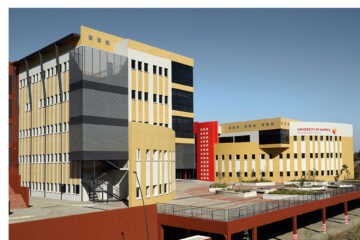Martin Endjala
Public Policy Analyst and International Relations Expert, Dr Marius Kudumo, says that the government needs to wake up to start formulating plans and policies that speak to the needs of the growing population to avoid future catastrophes in its developmental agendas.
Kudumo said the announcement of the Census Preliminary Population report on Wednesday by the Namibia Statistics Agency (NSA), highlights a huge concern for the country and a call for immediate interventions to address resource allocations.
“Surveys such as Census are conducted to give us data, and information so that it informs evident base policy-making and allocation of resources so that we are in a position to make an impact. Like the question you are asking, it has a serious impact on everyone in the country.
NSA has done a good job although it is only preliminary information, you can see how many people are in which age group, for example, 0-4, it tells you how much we plan our childhood early education. It can tell you how many learners are supposed to be in the general education systems,” said Kudumo.
He was responding to questions from Windhoek Observer, on what the Census results mean to an ordinary person and the impact on the country.
He emphasised that when the detailed data comes out, the number of young people not employed will give a clear picture and which categories are they falling, in terms of regions and sectors.
This means that the data provided indicates that more attention is needed to address the needs of young people and the material conditions of the young people, who are the largest population in the country constituting 71 percent, with the majority being under the age of 35.
“Whether it is job creation, education, health or entrepreneurship. Because 71 percent of your population is youth, it is a very big number and is more than 50 percent, and we need to pay attention to that,” cautioned Kudumo.
Another bone of contention Kudumo touched on, is the rural-urban migration, which has resulted in cities and towns’ budget constraints due to poor planning for not anticipating the population growth.
“We are now about to reach a very level of high of people living in cities, but the people that are running towns and cities, I do not think they are planning in terms of what will happen when all people are in the cities.
But the designs in the cities are from years back when the population was very small. So urban-rural migration is an important issue,” argued Kudumo.
However, he said it is not only important in terms of providing services to the citizens, but the rural-urban migration question needs to be addressed, citing it as a developmental paradigm problem.
This means that the country’s development like in the colonial era, is still concentrated in the cities and towns, Kudumo further cast doubt that government plans are even talking about these issues.
He believes that if opportunities are created in rural areas, it will minimise the migration conundrum causing budget constraints because people are in search of better services.
Meanwhile, Landless People’s Movement National Youth Leader Duminga Ndala, stressed the need to empower young people given that they are the majority holders of the population, arguing that if they are employed they will plough into the economy, sustaining the growth of the economy.
She said Namibia will be going to the polls in November 2024, and given the population of the country being young people, her argument is, that they do not want to see a situation of older people leading them.
“As young people, we cannot allow the narrative of being ruled by the minority, while they do not represent the greater population of the country,” she said.
Hence her call for the deployment of young people into leadership positions, such as National Assembly, sit on organisational boards amongst others.
She highlighted the importance of being serious about economic growth and economic development, and also ensuring efficient budgeting given the population number of three million.
She calls on the political party to ensure that 60 percent of their planning committees consist of young people and that all sectors must be dominated by young people if needed.




